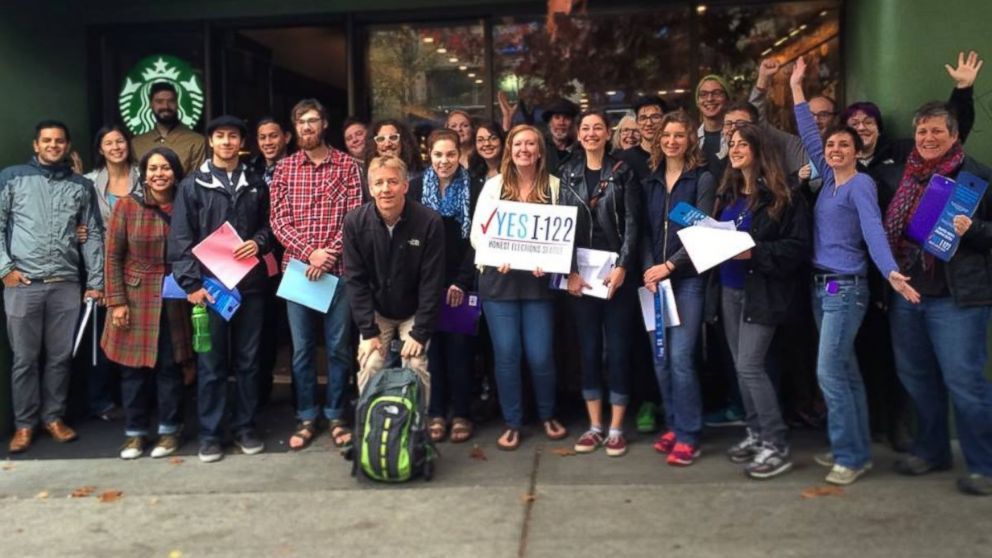How a Controversial New Initiative in Seattle Could Change Local Elections
I-122 promises to take big money out of local elections.

— -- Seattle residents are voting today on a controversial initiative that promises to take big money out of city elections –- and all with a handful of paper vouchers.
Known as the ‘Honest Elections Initiative’ or I-122, the program would give each registered voter four “democracy vouchers” that they could use to help fund local campaigns. Each voucher would represent $25 of public funds, and voters could give their vouchers to any local candidate of their choice, provided that the candidate opted-in to the program.
Seattle would be the first city in the nation to enact a democracy vouchers program if I-122 passes today. But the race could be close -- opponents say the program will be ineffective and expensive for taxpayers.
I-122 would enact measures beyond the voucher program -– it would lower contribution limits, require candidates to report any electronic contributions they receive and call for a three-year waiting period before any former city official takes a paid lobbying position. And for candidates to opt-in to the vouchers program, they would have to agree to certain requirements –- like participating in three debates and complying with spending and contribution limit laws.
But so far, attention has been focused on the democracy vouchers. The program has found fans in Congressmen Jim McDermott and Adam Smith. Aaron Ostrom, who’s an executive committee member of Honest Elections Seattle, the organization that created I-122, said the program would give Seattle voters “a chance and an incentive to” be involved in campaigns, ultimately giving "ordinary people a stronger voice in government."
But not everyone in Seattle supports I-122. Opposition to the initiative has taken shape in No Election Vouchers, a group that believes the program would be harmful to Seattle elections.
"My concern is that the vouchers don’t take any money out of politics," No Election Vouchers volunteer Richard Mahon said.
First, there’s the issue of paying for the program –- it will cost $3 million dollars a year, according to Honest Elections Seattle. The group said it plans to fund the initiative with an increase in property taxes, less than a cent per $1,000 of property value. But Mahon believes this is unfair to Seattle residents who aren't registered voters, especially undocumented immigrants who can’t register to vote, because taxes will increase but only registered voters will benefit from paying more.
Mahon also said the contribution limits I-122 imposes work against the voucher program -– candidates would reach their contribution limit before every registered voter was able to spend their vouchers. Since the program is on a "first come, first serve" basis, voters will want to spend their vouchers quickly to make them count –- and Mahon believes this will favor incumbents.
"Incumbents will be in a position January 2 [when the vouchers are set to be mailed to voter homes] to ask voters for the vouchers," Mahon said. "Challengers that don’t have some kind of name recognition [will] not."
O’Brien, who’s an incumbent running for re-election himself, said he believes the system will actually take away incumbent power by giving challengers more fundraising options. Many times, he said, candidates are limited to calling wealthy donors that won’t even pick up the phone if a candidate isn’t well-known.
"With the democracy vouchers, you just have to pay attention to voters," O’Brien said.




